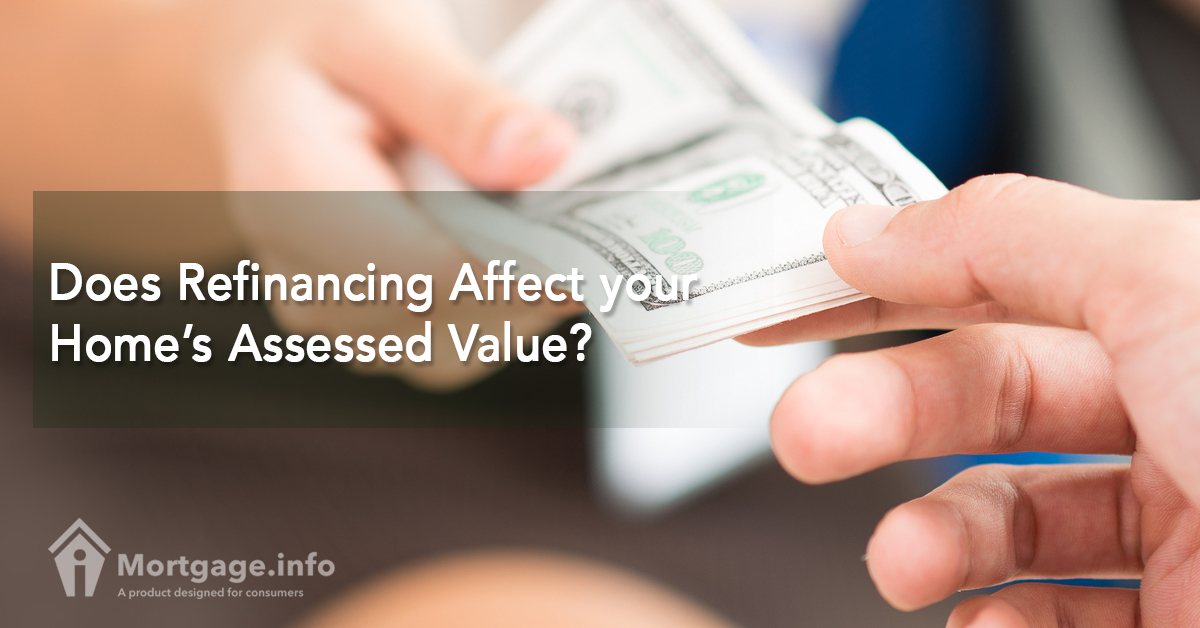
Owning a home means you have to pay certain things like a mortgage, real estate taxes, and homeowner’s insurance. It is a part of the responsibility of owning a home. Not to mention the maintenance and upkeep fees you continually have to pay to keep your home in good shape. Generally, your fees stay fairly stable, but you may see things like your real estate tax bill and your homeowner’s insurance fluctuate. These fluctuations are never due to the fact that you refinanced your mortgage, though. Your home’s assessed value is completely separate from any financing you obtain to purchase/refinance the home.
What are Property Taxes?
Property taxes are the fees you pay to own a home. This is the money your county collects in order to deliver the services it provides, such as education, fire and police service, as well as other public services. No two counties have the same tax rate or even collect taxes at the same time. The county determines the amount of money they need to provide the services they committed to provide and then they come up with the tax rate that will bring in that money. The tax rate is then multiplied by each home’s assessed value. The value your home is assessed for may differ from the appraised value, sometimes by a large amount. Whatever the value the town assesses your home at though, is how they calculate your taxes. For example, if your home assessed at $100,000 and the tax rate is 2.13%, you would owe $2,130 in taxes.
The Home’s Assessed Value
You probably wonder how a county comes up with the home’s assessed value. If it is not the same as the appraised value, what is it? Generally, assessed values are lower than appraised values because counties do not reassess homes on a yearly basis. Depending on where you live, you might see a reassessment once every 3-5 years. During this time, the market value of the home likely goes through many ups and downs. This could mean at some point that you might pay taxes that are higher than what is fair according to the market value of your home. You may also have times where you don’t pay enough compared to the market value of your home. In the end, it all evens out.
Refinancing Your Home
If you decide to refinance your home, you will likely need an appraisal. This is unless you use the FHA streamline refinance or VA IRRRL program. Neither of these programs require an appraisal – the original appraised value can be used for these purposes. Any other loan, especially cash-out loans, though, require a new appraisal. Many people worry about the value their home comes back at during this process. If it is higher, will they have to pay higher taxes? The good news is that you won’t have to pay higher taxes. The appraisal process and the tax assessment process are completely separate of one another. Only the tax assessors use the tax assessment values and only the lenders use the appraised values.
The only time the two values might coincide with one another is if you were to sell the home. When the property changes hands, the county gets involved. At this time, they may or may not reassess the home’s assessed value. It depends on the last time it was assessed and the jurisdiction it is located. When you refinance, the property does not change hands, so the county does not get involved. Refinancing is strictly for you to lower your interest rate or take cash out of the equity of your home.
Using your Equity to Fix Up Your Home
One way refinancing your home could affect your home’s assessed value is if you take cash out of the equity and use the money to fix up your home. Let’s say you take money out to add a pool in your backyard or to add another bedroom onto your home. These changes could trigger a reassessment of your home’s value. Anytime you make changes to your home that could increase its value, your taxes may increase. The assessor will likely come out and take a look at the improvement in order to determine just how much your assessed value should change. This usually is the case for any changes you make that require a permit from your city or municipality.
How Assessors Know About Your Changes
You might wonder how an assessor would even know you made any changes to your home. It’s not like you put a big sign out front letting everyone know you were finishing the basement or adding onto your kitchen. However, as stated above, anytime you need a permit for changes to your home, the county officials know about the changes. They have the ability to pull up any permits taken out during the last six months to a year. Once they know a permit was provided, they need to determine if you made any changes to your home. If you did, they will then determine how this affects the value of your home.
Your home’s assessed value may rise and fall frequently or not much at all. It depends on the area you live and how often the assessor’s office decides to assess the homes. One thing you can rely on, though, is any changes you make to your mortgage will not affect your home’s assessment. You will not see an increase or decrease as a result of your refinance. What you might see is a change due to other circumstances that circle around and affect your home’s value, but there is no direct impact. If you want to know how certain changes may affect the assessed value of your home, talk to others in your area who had similar things done. They should be able to tell you how much their taxes changed as a result. This can help you make the right decision for your household.
